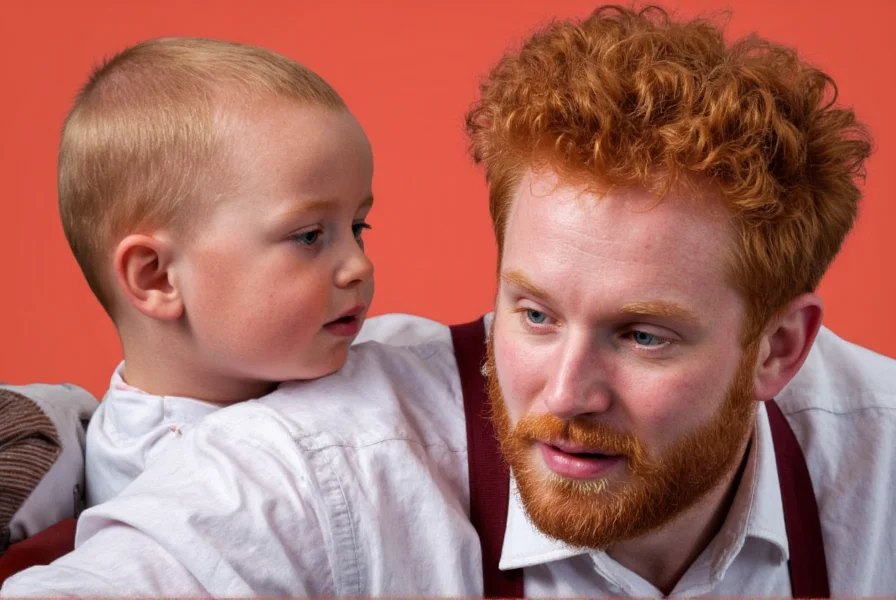Understanding the cultural context behind 'ginger guy' requires examining both historical perceptions and modern reinterpretations of red-haired identity. While the term might seem straightforward, its usage carries nuanced social implications that have shifted significantly over recent decades.
The Evolution of Red Hair Terminology
Historically, people with red hair have been subject to various labels across different cultures. In medieval Europe, redheads were sometimes associated with supernatural qualities—both positive and negative. The specific phrase 'ginger guy' emerged more recently as part of internet culture, gaining traction through memes and online communities.
Unlike older, often derogatory terms like 'carrot-top' or 'ginger,' the phrase 'ginger guy' generally carries less negative connotation when used respectfully. The shift toward more neutral terminology reflects broader societal changes in how we discuss physical characteristics.
Modern Usage and Acceptance
Today's usage of 'ginger guy' varies significantly by context and community. In many social circles, particularly among younger generations, the term is used without malice as a simple descriptor. Online communities like r/redhair on Reddit have helped foster positive representation, with many red-haired individuals reclaiming the term with pride.
However, sensitivity remains important. What might be an acceptable term among friends could be perceived differently in professional settings or by individuals who've experienced bullying related to their hair color. The key distinction lies in intent and context—using 'ginger guy' as a neutral descriptor differs significantly from using it mockingly.
Red Hair Genetics and Demographics
Understanding the biological basis helps contextualize the term. Red hair results from variations in the MC1R gene, occurring in approximately 1-2% of the global population. The highest concentrations appear in Scotland (13%) and Ireland (10%), making 'ginger guy' particularly relevant in these cultural contexts.
| Region | Red Hair Prevalence | Common Terminology |
|---|---|---|
| Ireland | ~10% | Ginger, Carrot-top |
| Scotland | ~13% | Wee ginger, Red |
| United States | ~2-6% | Ginger guy, Redhead |
| Australia | ~4% | Ginger, Blue |
Navigating Sensitivity Around the Term
When discussing 'ginger guy' terminology, several factors influence whether usage is appropriate:
- Relationship context: Terms acceptable among friends may not work in professional settings
- Regional variations: What's neutral in Scotland might carry different connotations elsewhere
- Personal preference: Some red-haired individuals embrace the term while others prefer 'redhead'
- Historical awareness: Understanding past discrimination helps inform current usage
Many organizations now include red hair characteristics in diversity training, recognizing that hair color-based discrimination, while often overlooked, does occur. The term 'ginger guy' fits within this broader conversation about physical diversity and respectful terminology.
Positive Representation and Cultural Shifts
Recent years have seen significant positive shifts in red hair representation. From actors like Emma Watson and Rupert Grint to influencers proudly identifying as 'ginger guys,' media visibility has improved considerably. Social media campaigns like #GingerPride have helped transform what was once primarily a target for bullying into a point of community and pride.
This cultural evolution means that when someone searches for 'ginger guy,' they're increasingly likely to find positive content celebrating red hair diversity rather than derogatory material. The term now frequently appears in contexts promoting self-acceptance and genetic diversity awareness.
Practical Guidance for Appropriate Usage
For those wondering how to appropriately use or respond to the term 'ginger guy,' consider these guidelines:
- When referring to someone specifically, use the terminology they prefer
- In professional contexts, 'red-haired individual' or 'person with red hair' remains the most neutral option
- When discussing the term generally, acknowledge its complex history
- Avoid assumptions about personality traits based on hair color
- Recognize that context dramatically affects whether the term is appropriate
Understanding the full context of 'ginger guy' terminology helps foster more inclusive communication while respecting individual preferences and cultural sensitivities.
Frequently Asked Questions
Is 'ginger guy' considered offensive terminology?
The offensiveness of 'ginger guy' depends entirely on context and delivery. When used as a neutral descriptor among consenting individuals, it's generally acceptable. However, when used mockingly or to reinforce stereotypes, it becomes problematic. Many red-haired people have reclaimed the term positively, but personal preferences vary significantly.
What's the difference between 'ginger guy' and 'redhead'?
'Redhead' is a more formal, widely accepted term that has been in use for centuries. 'Ginger guy' is a more recent colloquialism that specifically refers to males with red hair. While 'redhead' remains the standard term in most professional contexts, 'ginger guy' appears more frequently in casual conversation and internet culture.
Why do some people with red hair dislike the term 'ginger'?
Some red-haired individuals dislike 'ginger' due to its historical association with bullying and negative stereotypes. The term gained particularly negative connotations through media portrayals that linked red hair with undesirable personality traits. Personal experiences with discrimination often shape whether someone embraces or rejects the term.
How should I address someone with red hair if I'm unsure about terminology?
When uncertain, use neutral descriptive language like 'person with red hair' until you understand their preference. If discussing hair color is relevant to the conversation, you might politely ask 'What term do you prefer when discussing your hair color?' Most people appreciate this consideration and will share their preference.
Are there cultural differences in how 'ginger guy' is perceived?
Yes, significant cultural variations exist. In Ireland and Scotland where red hair is more common, terms like 'ginger' are often used casually without negative intent. In regions with fewer red-haired individuals, the term may carry more novelty or sometimes negative connotations. American usage tends to be more variable, influenced by both British media and domestic cultural contexts.











 浙公网安备
33010002000092号
浙公网安备
33010002000092号 浙B2-20120091-4
浙B2-20120091-4